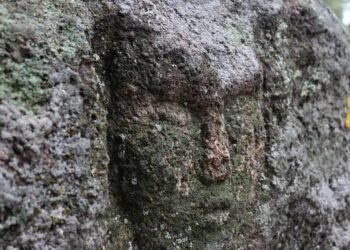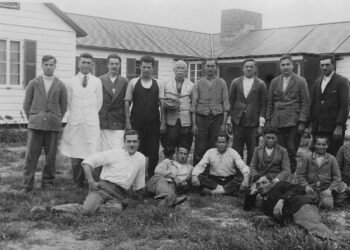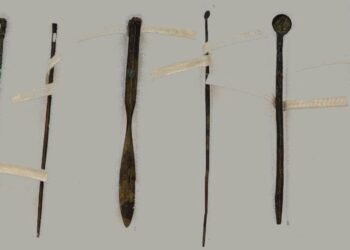Nekhbet was an ancient Egyptian goddess who was often depicted as a vulture or as a woman with a vulture headdress.
She held a significant role in Egyptian mythology and religious practices, particularly in the city of Nekhen (also known as Hierakonpolis), which was one of the earliest and most important cities in ancient Egypt. It was associated with the vulture goddess as her sacred city. The city’s name, Nekhen, is believed to be derived from her name.

Symbolism and Iconography: Nekhbet was typically depicted as a vulture or as a woman with the head of a vulture. Her vulture form symbolized both her protective nature and her connection to the skies, as vultures were often associated with their ability to soar high above and survey the land.
She was often shown holding the Ankh, the symbol of life, in one hand, and the Was scepter, a symbol of power and dominion, in the other. Nekhbet was associated with protection, motherhood, and sovereignty. She was considered a protective deity, often depicted with her wings outstretched in a gesture of sheltering and nurturing.
Role in Mythology: Nekhbet’s role in Egyptian mythology was closely intertwined with that of the cobra goddess Wadjet. Together, Wadjet and Nekhbet symbolized the unification of Upper (the southern part of the country) and Lower Egypt (the northern part), which eventually led to the formation of a single, unified kingdom. Their joint imagery was often used to signify the unification of Egypt under a single ruler, emphasizing the pharaoh’s divine authority over the entire kingdom.

Royal and Religious Significance: Nekhbet’s protective and maternal attributes made her a significant deity for the pharaohs. The pharaohs of ancient Egypt often sought the blessings and protection of Nekhbet, and she was sometimes referred to as the “Mother of Mothers” or the “Lady of Nekhen.”
Her image was incorporated into royal regalia, and she was often invoked to provide blessings and protection to the ruling monarch. Nekhbet was also associated with the concept of the “Nesu-Bity,” the dual king’s name that emphasized the ruler’s authority over both Upper and Lower Egypt.
Nekhbet was also associated with the concept of the “White Crown,” one of the two main crowns worn by the pharaohs. The White Crown was a tall, conical headdress associated with Upper Egypt, and it was often depicted in conjunction with the vulture imagery of Nekhbet.

Funerary Context: In addition to her protective and maternal aspects, Nekhbet was sometimes associated with the afterlife. She was considered a guardian and guide for the souls of the deceased, and her presence was often invoked in funerary texts and inscriptions. Her protective nature was believed to extend beyond the realm of the living and into the realm of the spirits.
Art and Architecture: Nekhbet’s imagery can be found in various forms of Egyptian art, including statues, amulets, and inscriptions. Her symbols were also incorporated into the architecture of temples and tombs. The ancient Egyptians believed that Nekhbet and Wadjet watched over the pharaoh and the people from their perches above the royal insignia.

Overall, Nekhbet played a significant role in ancient Egyptian religion, mythology, and iconography. Her symbolism represented concepts of protection, sovereignty, and the unification of Egypt, making her an essential deity in the pantheon of gods and goddesses worshipped by the ancient Egyptians.
































